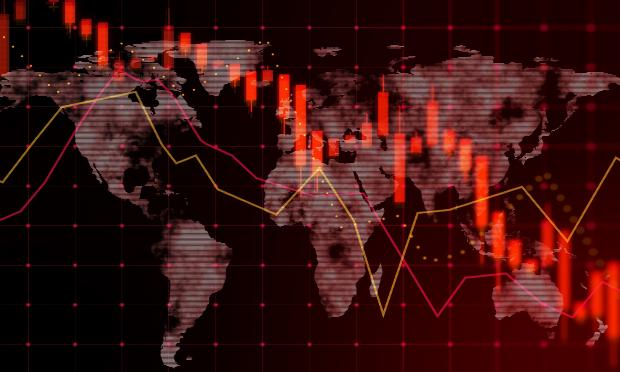War between Israel and Hamas could deal a heavy blow to the global economy, banking titans told an investment forum in Saudi Arabia on Tuesday.
The ominous mood from some of the meeting's most high-profile speakers underlined how the war threatens efforts by the world's biggest oil exporter to diversify its economy away from fossil fuels.
Hamas fighters invaded Israel from the Gaza Strip on October 7 and killed at least 1,400 people, mostly civilians who were shot or burned to death on the first day of the raid, according to Israeli officials. The militants also took 222 people hostage, including the elderly and young children, according to the latest count by Israeli authorities. More than 5,700 Palestinians, mostly civilians, have been killed across the Gaza Strip in retaliatory Israeli shelling, the Hamas-run territory's health ministry said.
"What just happened in Israel and Gaza - at the end of the day if you put all of these together, I think the impact on economic growth is even more severe," World Bank President Ajay Banga told the Future Investment Initiative (FII) conference ), often referred to as "Davos in the Desert", on Tuesday. "I think we are in a very dangerous juncture," he added.
"The yield on the 10-year US just yesterday was briefly above 5%, those are areas we haven't seen. So yeah, that's right where it's lurking in the shadows," Banga said, referring to the index's rise benchmark for borrowing costs around the world, which threatens further economic slowdown. "And then how long until the next pandemic?" Banga said during an event at the annual Future Investment Initiative (FII) in Riyadh.
Risks tend to move, he said. "So I would be very careful about focusing on one and ignoring the others right now." Banga said that while everything in the developed world looks better than expected a while ago, "I think we are in a very dangerous juncture." He said private sector investment is essential in developing economies, but political risks in some of these countries remain an obstacle.
"A trillion dollars is needed just for renewables in emerging markets. There is not enough money in sovereign wealth funds or even multilateral development banks, we need to involve the private sector with their capital," he said. "And that's the biggest task ahead of us."
The raging war risks drawing in other countries, notably Lebanon, home to the Iranian-backed militant group Hezbollah, which has engaged in daily firefights with Israeli forces.
"If these things are not resolved, it probably means more global terrorism, which means more insecurity, which means more of (the) society will be afraid, less hope," said BlackRock CEO Larry Finn. "And when there is less hope we see a contraction in our economies."
More than 6,000 delegates have registered for the three-day event, which will feature world bank chiefs and the presidents of South Korea, Kenya and Rwanda, according to organizers.
But Wall Street leaders said the lofty themes of innovation and economic transformation would be overshadowed at least in part by the shocking violence in Israel and Gaza. "We're sitting here against a backdrop, which I think we all recognize, of the aftermath of the terrorist attack in Israel and the events that have unfolded since then, and it's desperately sad. So it's hard not to be a little pessimistic," said Citi CEO Jane Fraser.
The war is in stark contrast to the vision of a more stable and prosperous Middle East championed by Saudi Arabia, which this year restored ties with Iran and was in talks to recognize Israel before the fighting broke out.
The conflict comes halfway through the "Vision 2030" reform program championed by the kingdom's de facto ruler, Crown Prince Mohammed bin Salman, which aims to overhaul the oil-dependent Saudi economy.


